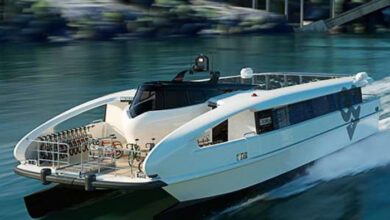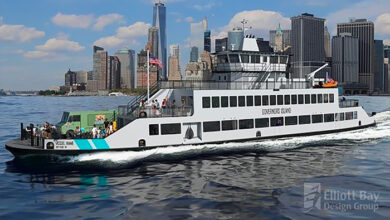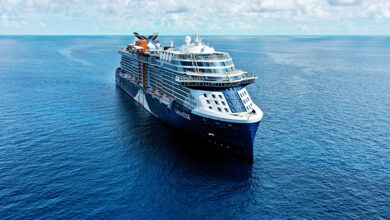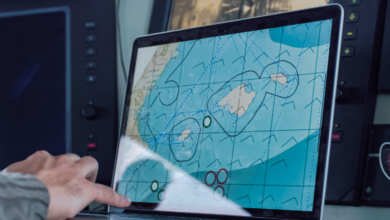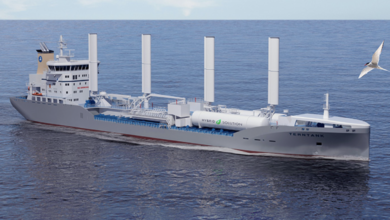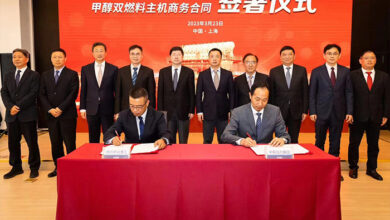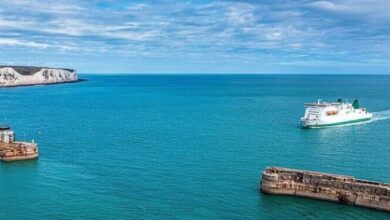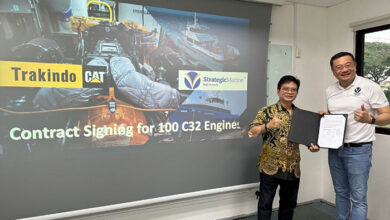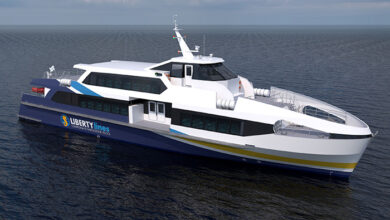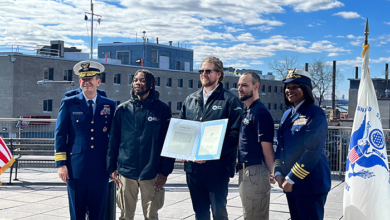Marek Grzybowski (3 ) questions for Jørn Askvik, Managing Director, Shortsea Promotion Centre Norway
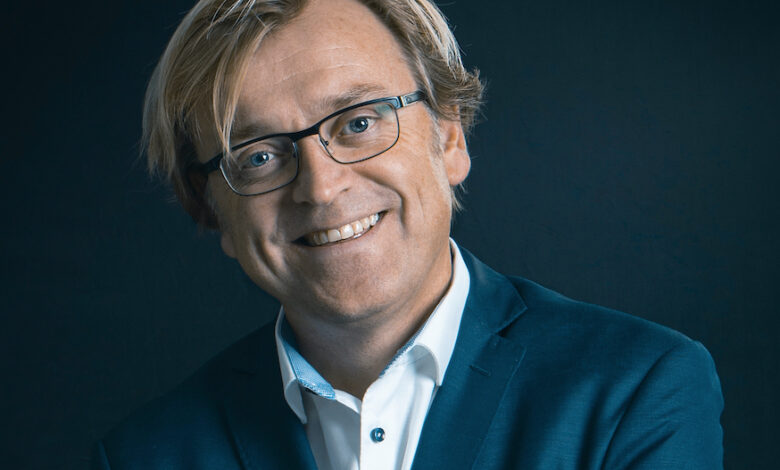
Shortsea shipping – competitive solution than road-based transport
The impact for European cargo-owners using a more intermodal value-chain compared to a pure road-based one is both a more sustainable and competitive transport solution.
Norway has a national ambition to move 30% of all transport (>300 km) from road to sea by 2030. Shortsea Promotion Centre is a tool to achieve this goal.
An exclusive interview for ” eblueeconomy” Jørn Askvik, Managing Director, Shortsea Promotion Centre Norway and 3 questions !!

Marek Grzybowski: The promotion of short sea shipping has been on the EU agenda since the early 1990s. Short sea shipping can enable many cross-cutting activities and have a positive impact on EU transport. What is the potential of Short Sea Shipping?
Jørn Askvik: Shortsea shipping is, in most cases, a more competitive solution than road-based transport. However, through countless conversations with cargo owners, the shift from road to sea, which in many cases implies less flexibility for the cargo owner, is still a good solution due to lower transport costs. The modal shift thus impacts positively on the competitiveness of European companies.
Sustainability is a second factor from Shortsea, positively affecting EU transport. Together with Network Transport Measures, Shortsea Promotion Center identified a reduction in Greenhouse Gas emissions of 60% when we compared road-based supply chains with an intermodal value chain for a large Norwegian company. Including slow steaming and more environmentally friendly fuel reductions of up to 70% could be achieved
In short, the impact for European cargo-owners using a more intermodal value-chain compared to a pure road-based one is both a more sustainable and competitive transport solution.

Marek Grzybowski: Short sea shipping transports both passengers and freight in Europe and its vicinity. The covid-19 pandemic has completely reversed the situation in global logistics chains and in passenger transport. Russia’s attack on Ukraine excluded the entire Black Sea region from shipping. How do you see the situation in the short shipping business?
Jørn Askvik: The situation in Ukraine is a tragedy for the people of Ukraine.
From the business point of view, rising fuel costs following the war, and challenges with supply chains from Covid-19 have resulted in less efficient operations.
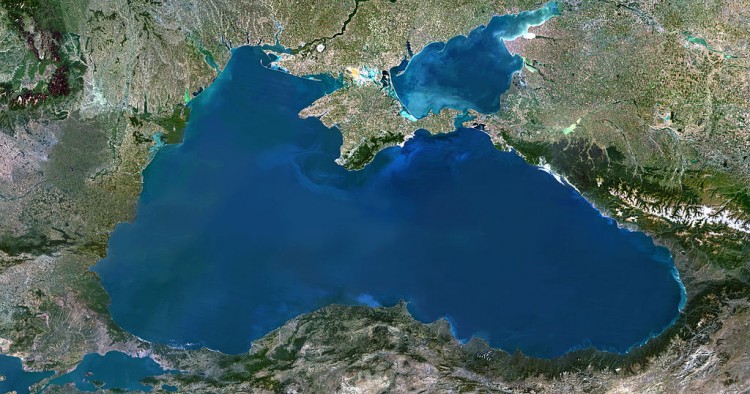
EU´s mobility package has resulted in less capacity for trucks in the Norwegian market, increased prices on road traffic, and less flexibility for the cargo owner.
We know that if customers don´t have an immediate demand or convincing argumentation to shift, most customers will prefer the comfort of the status quo. However, the capacity reduction in the Norwegian market has created a need for change. Cargo-owners are now exploring alternative transport solutions. And for good reasons.
Shortsea has proven that it can solve stringent logistical demands in the fruit and vegetables and fish segment. If Shortsea can comply with these market segments, more industries should look towards Shortsea for more sustainable and competitive transport solutions.

Marek Grzybowski: Shortsea Promotion Centre Norway (SPC-N) is a collaborative project between the Norwegian authorities and private members (Shipping lines, forwarders, ports, and branch organizations) to make Shortsea a larger part of the intermodal value chain. What do stakeholders expect from SPC-N? How are Norwegian maritime business actors involved in the development of EU short shipping?
Jørn Askvik: Norway has a national ambition to move 30% of all transport (>300 km) from road to sea by 2030. Shortsea Promotion Centre is a tool to achieve this goal. Working closely with the maritime industry and establishing connections with cargo owners, we act as a competence cluster for both sides of the equation. In the last years, we have created several meeting arenas for cargo owners to share their views on making a good customer experience.
The insight is shared with our members to support their innovation processes. As Steve Jobs once said – “In Apple, we start with the customer experience and work backward towards technology. We don´t start with technology and figure out different ways to sell it”.
Mr. Jobs understood that if you try to reengineer the need statement based on your product, it´s easy to lose touch with reality.
In Shortsea Promotion Centre, we start with the cargo owner, understand their pain points, and bring that knowledge back to the industry. The customer demand is not the boat, train, or truck but predictable, cost-efficient, and sustainable logistics.
The cooperation between all stakeholders, including cargo owners, creates momentum for change. Shortsea Promotion Centre has 31 members (Ports, Shipping lines, and forwarders) actively participating in the work of making Shortsea a more significant part of the intermodal value chain. Active cooperation creates opportunities and speeds up innovation.


